Empowering Adolescents with ISJA Tool: Adolescent Youth-Friendly Sexual and Reproductive Health Services at Siaya County
 09 November 2023
09 November 2023
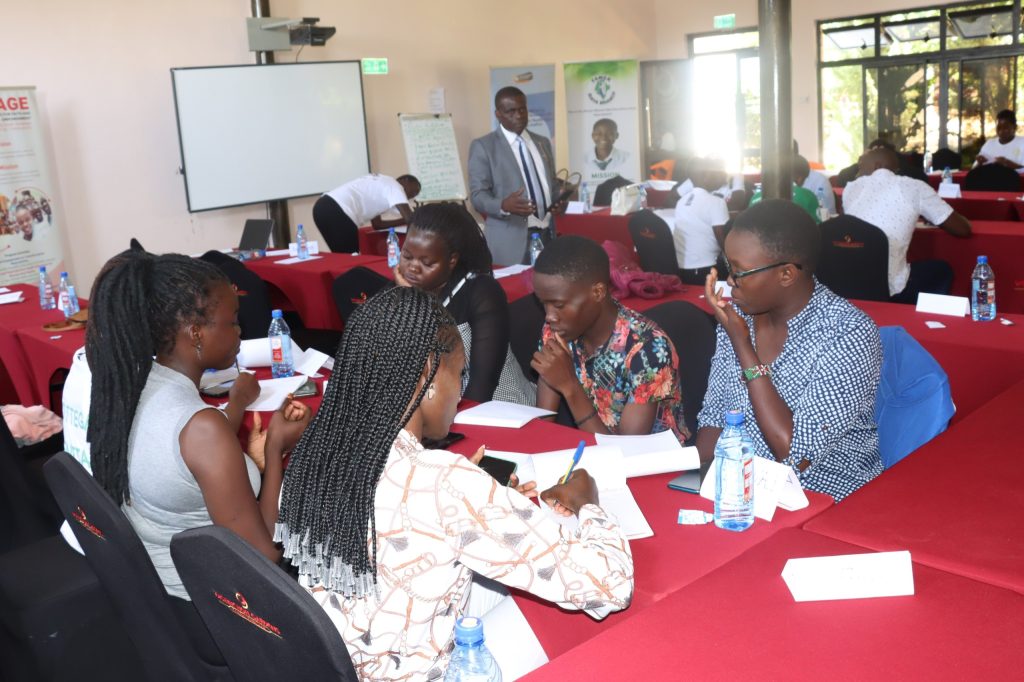
In a rapidly changing world where adolescents face a complex landscape of sexual and reproductive health, the importance of accessibility to youth-friendly SRHR services cannot be overstated. In Siaya County, the teenage pregnancy rate is at 24%, Sexual Gender Based violence cases recorded in 2022 is 50%, the contraceptive uptake proportions of adolescents between 15-19 years is at 28.1%, while HIV prevalence among people aged 15–49 years in Siaya is 15.3%, three-fold higher than the national estimate of 4.9%. To address these issues, a transformative event was organized to discuss and advocate for sexual and reproductive health (SRHR) services tailored to young people. This event brought together stakeholders, policymakers, healthcare professionals, and young people, creating a platform to address critical issues and chart a path toward a healthier and empowered future.
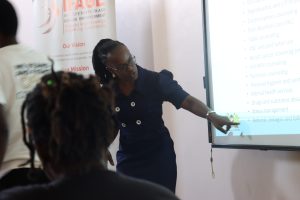
Caro Ayieko; head of Reproductive Health at Siaya county explaining youth friendly services guidelines.
The Siaya initiative
The Siaya event was part of a broader initiative to establish and promote adolescent and youth-friendly sexual and reproductive health and rights (SRHR) services throughout the county. The event was organized through a collaboration of various entities, including government agencies and Non-Ggovernmental organizations (NGOs) such as The Circle of Concerned African Women Theologians Kenya (CCAWT), Forum for African Women Educationalist (FAWE) Kenya/Siaya Chapter, Institute of Faith and Gender Empowerment (IFAGE), healthcare professionals from Siaya County, community leaders, and youth-led community organizations.
Several Key Objectives necessitated the collaborative initiative. They include:
Understanding AYFS
Understanding AYFS (Adolescent and Youth-Friendly Services) is crucial in meeting the unique needs of young people as they face complex sexual and reproductive health issues. These services are designed to be friendly, non-judgmental, and easily accessible to provide a safe space for young people to seek information, advice, and healthcare. They prioritize privacy, ensuring that young people can access services without fear of violating privacy. Additionally, teen-friendly
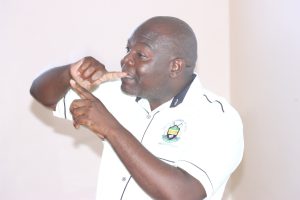
Kennedy Odhiambo Oruenjo; director of Public Heath at Siaya county.
services are age-appropriate, addressing specific concerns and questions that teens may have about relationships, sex, contraception, and related issues. By recognizing the importance of youth-friendly services, we can provide young people with the knowledge and support they need to make informed decisions that promote positive and healthier outcomes. This is especially crucial during this critical phase of life, as it can lead to reduced risky behaviours and better outcomes.
Awareness and Education
The main objective of the event was to raise awareness about the significance of Sexual and Reproductive Health and Rights (SRHR) among young people and to emphasize the need for youth-friendly SRHR services. The Intersectional See Judge Act tool (ISJA) was utilized to educate the participants about Adolescent and Youth-Friendly Services (AYFS) in Siaya County. The attendees gained a comprehensive understanding of AYFS, the opportunities and challenges related to accessing these services, and how to overcome them.
Access to services
The event highlighted the need to improve access to AYFS services. This involves creating safe spaces for young people to seek information and services without judgment, ensuring confidentiality, and providing services appropriate to their age group.
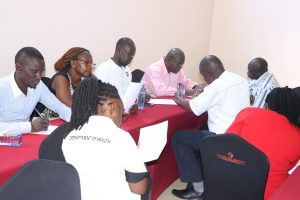
Health professionals representing sub-counties in Siaya having a discussion on access of youth friendly SRHR services.
Community Engagement
In addition to healthcare professionals, the event also included youth and their communities. They emphasized the importance of community support and dialogue to remove barriers to AYFS, and SRHR among adolescents.
Policy Advocacy
The stakeholders discussed the need for policies that support AYFS services. Advocacy strategies have been developed to ensure that policymakers at every level consider the needs and rights of youth when making decisions.
Religious and cultural barriers
Implementing youth-friendly services in Siaya County can be challenging due to religious and cultural barriers influencing deeply ingrained norms and beliefs. Conservative cultural values and religious doctrines prevalent in the region can stigmatize discussions around adolescent sexual and reproductive health, making it difficult for young people to access information and services. Additionally, traditional gender roles and expectations often limit open dialogue about these topics, which complicates efforts to provide youth-friendly services. It’s crucial for stakeholders, including community leaders and religious organizations, to participate in awareness-raising and education efforts to address these gaps while respecting cultural and religious values. It’s essential to ensure that young people have access to comprehensive information and support to make informed decisions about their sexual and reproductive health.
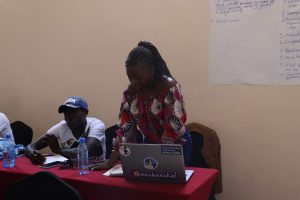
Youth panelist Vilda making her remarks during the ISJA tool training session.
Emerging from this consultative initiative are several takeaways worth implementing.
1.Youth Voice Matters
Young people played a vital role in shaping discussions. Their contributions, experiences, and suggestions were crucial to the event’s success, highlighting the importance of including their perspectives in SRHR programs.
2. Breaking the stigma
An essential aspect of AYFS services is to reduce the stigma surrounding adolescent sexuality and reproductive health. This event encouraged open conversations through the ISJA tool, challenging taboos and harmful stereotypes.
3. Community Ownership
To foster a positive environment for adolescents to access youth-friendly services, involving families, religious leaders, and elders is essential. Their engagement plays a critical role in creating a supportive community for young people Collaborations between governmental agencies, NGOs, healthcare providers, and community organizations are essential in creating a holistic approach to adolescent sexual and reproductive health and rights (SRHR).
4. Re-training of Health Professionals
Providing AYFS services requires re-training healthcare professionals in Kenya. This is an essential step towards meeting the unique needs of adolescents. By equipping healthcare providers with the knowledge and skills they need to provide sensitive, non-judgmental, and age-appropriate care, young people can access the information and health services they need to make informed decisions about their reproductive health and sexuality. This involves educating healthcare professionals about the latest evidence-based practices, communication techniques, and cultural competency to ensure that young people feel comfortable finding SRHR services. Such reskilling efforts help remove barriers and promote an environment of respect and support, which is crucial for providing quality care to adolescents.
5. Prospects
Siaya’s initiative is a promising step towards equipping adolescents and young people with the necessary tools and support to make informed decisions about their sexual and reproductive health. The event marked the beginning of a comprehensive plan that includes continuous awareness campaigns, training for healthcare providers, and advocacy for AYFS services, all of which aim to improve the quality of life for young people.
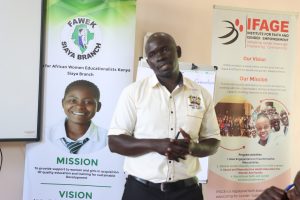
Dr Bob Awino; Director of Health in Siaya county.
Conclusion
The Siaya collaborative event indicated that the Siaya County government is committed to providing access to Adolescent and Youth Friendly Services (AYFS). It serves as a beacon of hope for young people not just in Siaya County but across Kenya and beyond. By prioritizing the sexual and reproductive health of young people, we are creating a path towards a healthier, more empowered future generation. This event was a reminder that inclusion, dialogue, and collaboration are essential in building a world where young people can confidently navigate their sexual and reproductive health and have access to the services they require with dignity and respect.



